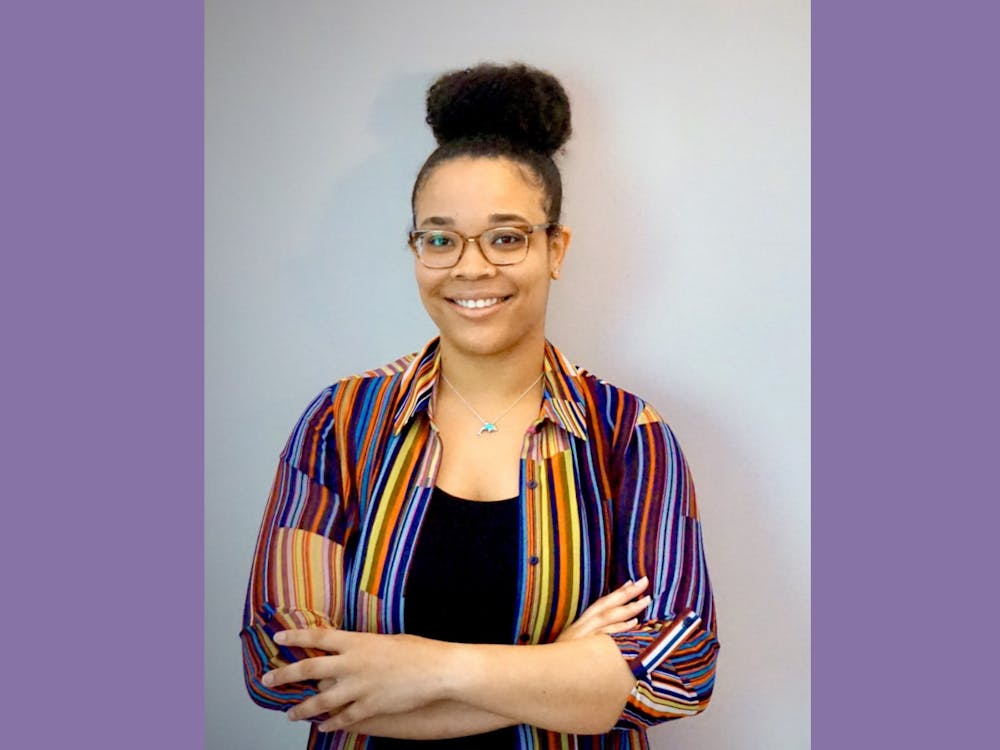For more election coverage from across North Carolina, visit One Vote N.C., a collaborative between The Chronicle and six other student newspapers that aims to help college students across the state navigate the November election.
Anjali Boyd, a first-year doctoral student at the Nicholas School of the Environment, is running for Durham Soil and Water Conservation District supervisor on a platform of education, environmental justice and economic development.
A Durham native, Boyd is making her bid for supervisor after serving as an associate supervisor for the Soil & Water Conservation District. Her campaign team—composed entirely of other Durham natives—embodies her connection to the city she hopes to serve, and she has received endorsements from Durham Mayor Steve Schewel, the Sierra Club and the Durham Committee on the Affairs of Black People, among others.
Boyd completed her early education in Durham and gained a degree in marine science from Eckerd College in Florida. She is studying at the Nicholas School as a Dean’s Graduate Fellow.
“From a Durham perspective, there is a big emphasis on giving back and helping each other,” Boyd said. She emphasized that her connection to her hometown prepares her to take on the district supervisor role, as it gives her a unique perspective on what life and the community is like. “That comes into play a lot when you think about the fact that this position has a large advocacy role at the state and national level,” she said.
Boyd is acquainted with environmental health issues in Durham and emphasizes the interdisciplinary nature of addressing such issues.
She has spent her career at the intersection of conservation, health and environmental justice, and, some of her policies include developing innovative ways to sell produce during the pandemics, such as utilizing mobile farmer’s markets. This both addresses food insecurity in Durham and supports economic well-being of farmers in a time when demand for their products has decreased, she said.
“Currently, about one-third of small farmers are projected to go bankrupt by the end of the year because of the pandemic,” Boyd explained. She proposed increasing investment in e-commerce platforms to help farmers supplement their income and expanding high-speed internet to rural areas. She added that many small companies in the Triangle area have expressed interest in working with the district supervisor to accomplish these tasks.
As a scientist running to serve in a policy role, Boyd is aware of the lag in incorporating new scientific research in policy-making.
“The one thing about science—it’s very powerful and it’s very strong, but it moves very, very slow, especially compared to things like policy and other sectors of our economy,” she said. “By the time we have a scientific breakthrough, it can take years for it to get to the public and become public knowledge.”
Despite this, Boyd believes her connection to the scientific community can help bring the district to the cutting edge of scientific research—which she said gives her a unique advantage in the race.
“My uniqueness comes from my ability to combine my experiences growing up here in Durham with the education and the science expertise which I have accumulated over the years,” she said.
Boyd highlighted the importance of bringing women of color into the role of Soil and Water Conservation District supervisor. She pointed to the fact that out of more than 450 soil and water supervisors in the state, only three are Black women. Correcting this imbalance is part of what inspired her to run, she said.
“It is important to acknowledge the fact that this field is not diverse,” she said. “I think having more representation from Black women, women of color and women in general is really important.”
Nyla Bennett, a longtime friend of Boyd’s from high school, told The Chronicle that voters should know that Boyd “sees what’s happening and wants to make a difference one step at a time,” and that “she always puts her best foot forward.”
Bennett also applauded Boyd’s ability to uplift those around her, inspiring others with her motivation.
“Everything that she does is with good intent,” she said.
Boyd said voters should vote for her “not just for the science and the fact that I’m a Durham native and know the community well, but because I represent a very underserved population in this field and I think it is important to elevate the voices of more women of color,” she said.
Get The Chronicle straight to your inbox
Signup for our weekly newsletter. Cancel at any time.

